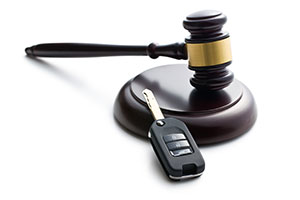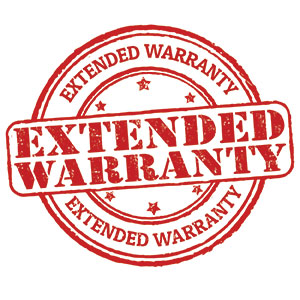By: Gov Auctions | 18 December 2014
Can I Get a Warranty When I Buy a Used Car at Auction?

You wouldn’t expect to get a warranty when you buy a used car outside of a dealership, but many people don’t realise that auto auction centres and online auctions usually offer a 3-month warranty on all vehicles free of charge.
The reason they feel confident doing that is because the majority of government and repo cars sold at auction are only a couple of years old and, in the case of government vehicles, come with a fully documented service history.
But if you’re looking for a warranty that’s a little longer lasting than that, then you have two main options: a factory or manufacturer’s warranty, and an extended or aftermarket warranty.
Factory warranty
Most cars sold in public auctions, particularly government auctions, are only two or three years old with around 20,000 or 30,000 miles on the clock. This usually means they are still under factory warranty, as it is fairly standard for this to be offered by the manufacturer for up to 50,000 miles or so.
How this affects you is that a vehicle you buy at auction could be under factory warranty for at least another year or two, depending on how many miles you average in a year. There may be some limitations with regard to the warranty on the power train or some other components, which may not be transferable, but as a general rule a factory warranty provides cast iron cover for as long as it lasts.
Extended warranty
 When you buy through many auction centres, they will give you the option of buying an extended warranty for your vehicle. There are two schools of thought regarding extended warranties: one that sees merit in them, and one that believes they are a waste of money.
When you buy through many auction centres, they will give you the option of buying an extended warranty for your vehicle. There are two schools of thought regarding extended warranties: one that sees merit in them, and one that believes they are a waste of money.
While the person who sells an extended warranty to you will make money via a commission, whether you get your money’s worth out of the deal depends very much on what it covers. For example, if it covers mainly components that would fail earlier rather than later in a car’s life, then you are probably paying for things that are unlikely to fail now as they will have already been replaced.
Other factors to consider when deciding whether an extended warranty represents good value for money are things like the deductible (how much you must pay towards a claim) and the terms of service (i.e. can you take it to your preferred repairer or do you have to use theirs?). And as far as cost is concerned, as a general rule of thumb you should never pay more than 10% of the car’s purchase price for an extended warranty.
Warranty tips
Just like purchasing any kind of insurance, you need to shop around for the best deal. Here are some other things to keep in mind when buying a warranty.
- Do some background checking on the underwriter or issuer of the warranty, and only go with those with a sound industry track record and good reputation. You can do this at A.M Best, which is an online insurance rating service.
- Always read the contract from cover to cover - particularly the fine print, which is where the exclusions will be hidden (those things not covered by the warranty).
- Make sure the deductible is an acceptable amount, and that it is only charged the one time rather than for every repair visit.
- Only go with a warrantor who pays directly for repairs. Those who say they will ‘reimburse’ you may not always be on the level, or you may wait a long time to get your money.
- Make sure the warranty is transferable in case you decide to sell the car. If it is not transferable, you should check if it has a refund policy covering the unused portion.
If you don’t like taking risks on whether your vehicle will experience problems while you own it, then a warranty with all the bells and whistles may be your best bet. Alternatively, some people prefer to gamble on how much repairs are likely to cost them while they own the car, and to put that money aside in a bank account, where at least it will be earning interest for them in the meantime.
Like any form of insurance, warranties are about risk versus peace of mind, and the type of warranty you opt for when purchasing a used car at auction will depend to a large extent on how cautious you are.
You wouldn’t expect to get a warranty when you buy a used car outside of a dealership, but many people don’t realise that auto auction centres and online auctions usually offer a 3-month warranty on all vehicles free of charge.
The reason they feel confident doing that is because the majority of government and repo cars sold at auction are only a couple of years old and, in the case of government vehicles, come with a fully documented service history.
But if you’re looking for a warranty that’s a little longer lasting than that, then you have two main options: a factory or manufacturer’s warranty, and an extended or aftermarket warranty.
Factory warranty
Most cars sold in public auctions, particularly government auctions, are only two or three years old with around 20,000 or 30,000 miles on the clock. This usually means they are still under factory warranty, as it is fairly standard for this to be offered by the manufacturer for up to 50,000 miles or so.
How this affects you is that a vehicle you buy at auction could be under factory warranty for at least another year or two, depending on how many miles you average in a year. There may be some limitations with regard to the warranty on the power train or some other components, which may not be transferable, but as a general rule a factory warranty provides cast iron cover for as long as it lasts.
Extended warranty
When you buy through many auction centres, they will give you the option of buying an extended warranty for your vehicle. There are two schools of thought regarding extended warranties: one that sees merit in them, and one that believes they are a waste of money.
While the person who sells an extended warranty to you will make money via a commission, whether you get your money’s worth out of the deal depends very much on what it covers. For example, if it covers mainly components that would fail earlier rather than later in a car’s life, then you are probably paying for things that are unlikely to fail now as they will have already been replaced.
Other factors to consider when deciding whether an extended warranty represents good value for money are things like the deductible (how much you must pay towards a claim) and the terms of service (i.e. can you take it to your preferred repairer or do you have to use theirs?). And as far as cost is concerned, as a general rule of thumb you should never pay more than 10% of the car’s purchase price for an extended warranty.
Warranty tips
Just like purchasing any kind of insurance, you need to shop around for the best deal. Here are some other things to keep in mind when buying a warranty.
- Do some background checking on the underwriter or issuer of the warranty, and only go with those with a sound industry track record and good reputation. You can do this at A.M Best, which is an online insurance rating service.
- Always read the contract from cover to cover - particularly the fine print, which is where the exclusions will be hidden (those things not covered by the warranty).
- Make sure the deductible is an acceptable amount, and that it is only charged the one time rather than for every repair visit.
- Only go with a warrantor who pays directly for repairs. Those who say they will ‘reimburse’ you may not always be on the level, or you may wait a long time to get your money.
- Make sure the warranty is transferable in case you decide to sell the car. If it is not transferable, you should check if it has a refund policy covering the unused portion.
If you don’t like taking risks on whether your vehicle will experience problems while you own it, then a warranty with all the bells and whistles may be your best bet. Alternatively, some people prefer to gamble on how much repairs are likely to cost them while they own the car, and to put that money aside in a bank account, where at least it will be earning interest for them in the meantime.
Like any form of insurance, warranties are about risk versus peace of mind, and the type of warranty you opt for when purchasing a used car at auction will depend to a large extent on how cautious you are.